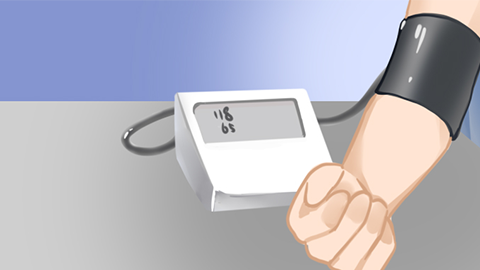How to lower high blood pressure, and what is the best method?
High diastolic pressure refers to elevated diastolic blood pressure. Generally, there is no specific method considered the "best" for lowering diastolic pressure. High diastolic pressure may be caused by unhealthy lifestyle habits, high levels of mental stress, hyperlipidemia, renal insufficiency, diabetes, and other factors. It can be improved through general treatment and medication. Prompt medical consultation and following the doctor's instructions for treatment are necessary. Specific details are as follows:

1. Unhealthy lifestyle habits: Long-term high-salt and high-fat diets, lack of exercise, obesity, smoking, and excessive alcohol consumption can all lead to vasoconstriction and increased vascular resistance, causing elevated diastolic pressure. One should adhere to a low-salt, low-fat diet, increase physical activity, control body weight, and quit smoking while limiting alcohol consumption.
2. High mental stress: Prolonged mental stress, anxiety, and insomnia can overstimulate the sympathetic nervous system, increasing heart rate and myocardial contractility, thereby raising diastolic pressure. Psychological interventions such as counseling and relaxation training should be employed to relieve stress and improve psychological well-being.
3. Hyperlipidemia: Hyperlipidemia refers to abnormally elevated lipid components in the plasma, such as cholesterol and triglycerides. These lipids deposit on the vessel walls, forming atherosclerotic plaques that narrow blood vessels and increase vascular resistance, leading to elevated diastolic pressure and possibly accompanied by dizziness. Medications such as simvastatin tablets, atorvastatin calcium tablets, and ezetimibe tablets may be used under medical guidance to reduce inflammation and inhibit cholesterol absorption in the intestines.
4. Renal insufficiency: Patients with renal insufficiency experience water and sodium retention due to reduced kidney excretion, resulting in increased blood volume, elevated diastolic pressure, and accompanying edema. Diuretic and antihypertensive medications such as hydrochlorothiazide tablets, captopril tablets, and enalapril maleate tablets may be used under a physician's guidance.
5. Diabetes: Long-term hyperglycemia in diabetic patients damages vascular endothelial cells, promotes atherosclerosis, increases vascular resistance, elevates diastolic pressure, and is often accompanied by polyuria. Blood glucose-lowering medications such as acarbose capsules, glimepiride tablets, and gliquidone tablets may be used as directed by a physician.
Maintaining good lifestyle and hygiene habits in daily life can help prevent the occurrence of diseases.




